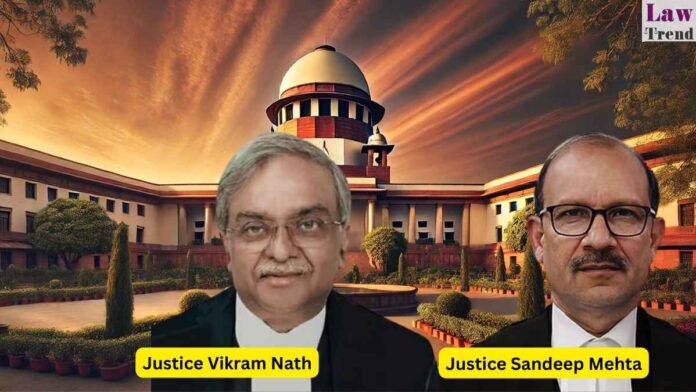The Supreme Court of India, in a significant order, has directed all States and Union Territories that have not yet framed rules under the Anand Marriage Act, 1909, to do so within four months. A bench comprising Justice Vikram Nath and Justice Sandeep Mehta, hearing a Public Interest Litigation, mandated that until such rules are
To Read More Please Subscribe to VIP Membership for Unlimited Access to All the Articles, Download Available Copies of Judgments/Order, Acess to Central/State Bare Acts, Advertisement Free Content, Access to More than 4000 Legal Drafts( Readymade Editable Formats of Suits, Petitions, Writs, Legal Notices, Divorce Petitions, 138 Notices, Bail Applications etc.) in Hindi and English.




